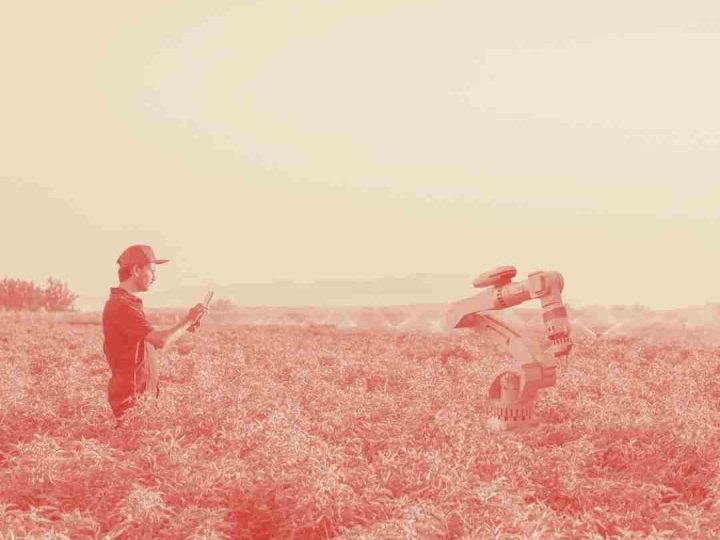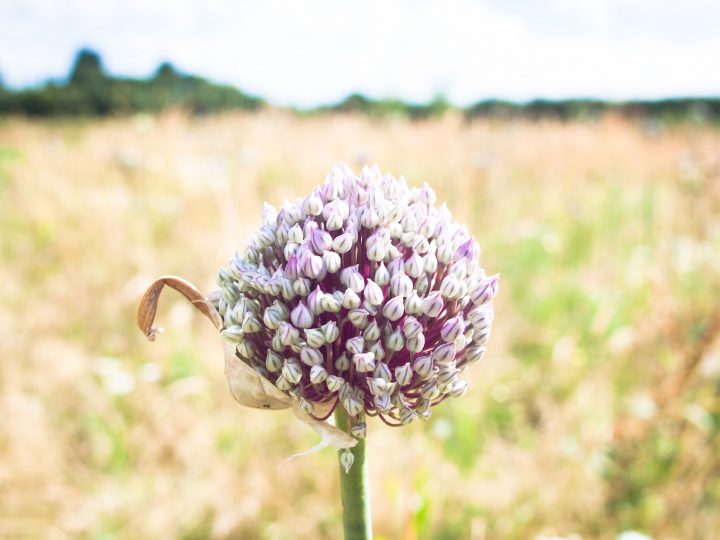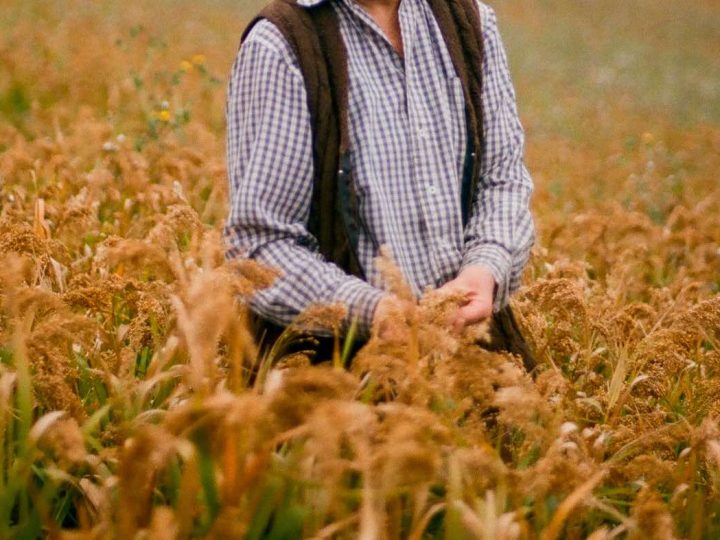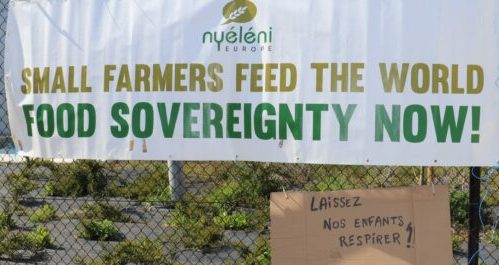Farming is under threat from the far right. We are an organisation that actively campaigns for the most marginalised in our sector and society: the LGBTQIA+ communities, Black people and People of Colour, migrant workers. These are the communities most at risk from the presence of the far right in farming, but ultimately none of us, nor our farmlands will benefit from their vision of the world. We have seen attempts by various groups to exploit the legitimate grievances of farmers in order to sow the seeds of hate and division. Many of our members have spotted this happening and are now supporting each other to act. The time has come to organise anti-fascist resistance within our sector.
During the 2024 elections, LWA members spotted Reform campaign material being shared in our networks, including misinformation which exploited farmers’ and landworkers’ legitimate fears over the safety of our livelihoods and lands. In summer 2024, the violence of the xenophobic riots deeply affected much of our community, especially our BPOC members and the landworkers we advocate for through our Migrant Solidarity Programme. Further, in November 2024, we saw protests against the proposed changes to inheritance tax laws, which drew large numbers of farmers. They were joined by public figures such as Jeremy Clarkson, who employed divisive, inflammatory language, claiming the government was ‘ethnically cleansing’ the countryside by trying to ‘wipe out’ British farmers.
As we’ve seen from the coverage of recent protests, far-right ideas can sow the seeds of deep division, between policy makers, citizens, and the workers who tend to our land and produce our food. We have seen our fellow farmers demonised by the media as elite landowners, at a time when it’s absolutely essential to champion and support the workforce stewarding our ecosystems and maintaining the viability of our food supply chains. We have also seen the demonisation of migrants, at a time when we need to be increasing understanding of their role and importance in the sector. Migrant workers are the backbone of our agricultural system and we should be protecting their rights, not making their positions more precarious.
Further, while the impacts of climate change continue to be increasingly visible on our farms, we also see the growing influence of climate change denial and heavily-resourced misinformation campaigns across our communities and our sector, with very little significant opposition. Movements like ‘No Farmers, No Food’ have capitalised on the frustrations and isolation felt by many farmers, and have whipped up support for climate change denial, and for the weaponisation of food ‘sovereignty’ as a rationale for xenophobia.
Though farming is one of the least diverse sectors in the UK, our membership bucks that trend. We know that the diversity of our membership is one of its greatest strengths. We know that migrants, Muslims, Black people and people of colour, women and the LGBTQIA+ community- and especially trans women- are those who are most threatened by the far right. We stand in solidarity with them all and we will speak up and organise against the far right. We will speak up and organise against the age-old tactics of political deflection, division and scapegoating in times of economic crises; tactics that pit marginalised groups against one another rather than addressing real, societal issues.
Harmful narratives appear to be latching onto legitimate questions of land, history, culture, class and livelihood, creating a pipeline into anti-immigration, and anti-climate-change thinking. This will only make it harder for our members to ecologically steward and work the land, sustainably produce food, and create fair employment opportunities for diverse groups of new entrants to landwork.
We can challenge these narratives, safely and inclusively, by working in solidarity, for our collective liberation and social and economic justice. Further, we believe we already have many of the tools to do so, using the political frameworks of food sovereignty and agroecology.
Introducing HOOF
The events of 2024 revealed an appetite in our networks of members and Member Organisers to see more political education and clarification of LWA’s political stances. Many of our members are anxious about the influence of the far-right on attempts to make our food system more sustainable and inclusive. Member Organisers want the confidence to talk with people in their communities; they want to bring people in, not turn them away.
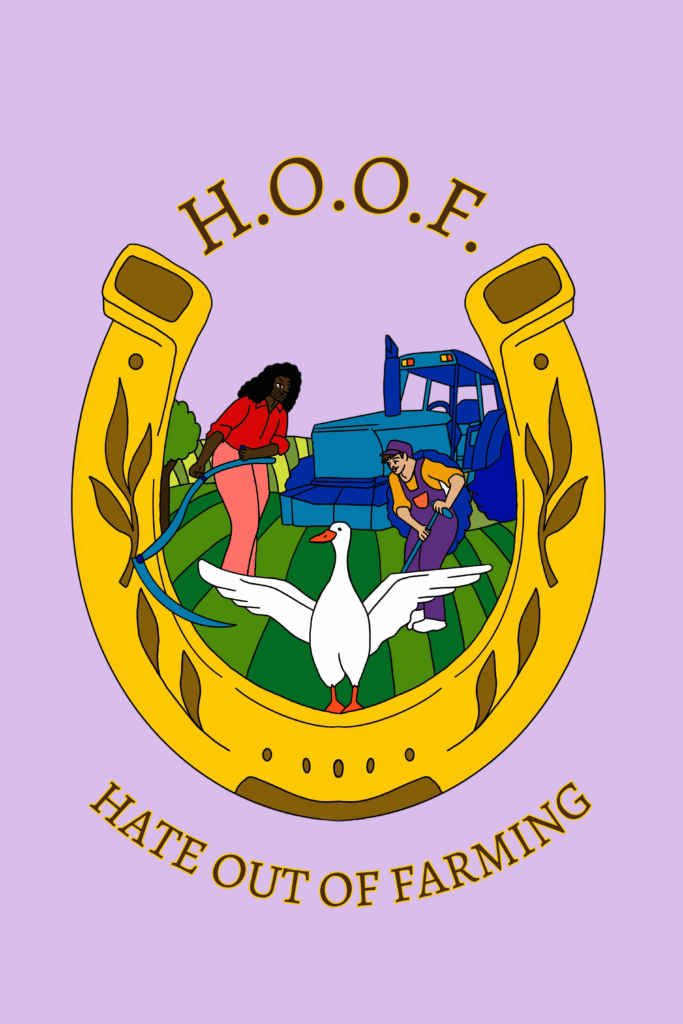
artwork by @blkmoodyboi
In November 2024, following the inheritance tax protests, a group of LWA Member Organisers (MO’s) raised concern about how the issue may impact our farms and our movement. The MO’s speaking up wished to come together online, to hear each others’ worries, and to bounce ideas for addressing the influence of the far-right in our communities and online spaces.
We helped coordinate two ‘Rapid Response’ online meetings for member organisers, attended by approx 20-30 Member Organisers, staff and CG members. Following these we established a resources folder and set up a group for coordinating meetings and discussions. This became a safe space for expressing fears about the influence of the far-right and for airing our anxieties about the future. It also became a space for sharing ideas to organise against the far right in concrete ways, as well as for more in-depth political discussion. The MOs expressed early on how important it would be to include the wider membership in the discussion, so we organised a session on the topic at the Feb ‘25 LWA AGM online, which received really positive feedback from members who felt reassured that the topic was on our radar.
In February members of the group came together to finalise a 3-pronged strategy for tackling the far-right in farming in the coming year:
1 Political education: Identifying how fascism shows up in our food + farming movement / spaces, and in far-right politics
2 Engaging the wider membership + movement: Communications, trainings and engagement at LWA and partner gatherings
3 Care + Solidarity: Equipping + empowering members to build alliances and be visible
We will be detailing each of these in greater depth in our next blog post, coming soon.
Though we acknowledge that farming is under threat from the far right, we also know that their story is one of hate, of exclusion and of barren homogeneity. As landworkers, we understand where monoculture gets us, and we know the importance of diversity; in our seeds, in our crops, in the fields and on the farmlands and including those who work them. ‘HOOF’ exists to sever the pipeline laid out by the far right and to intercept it with our own, much richer story.

